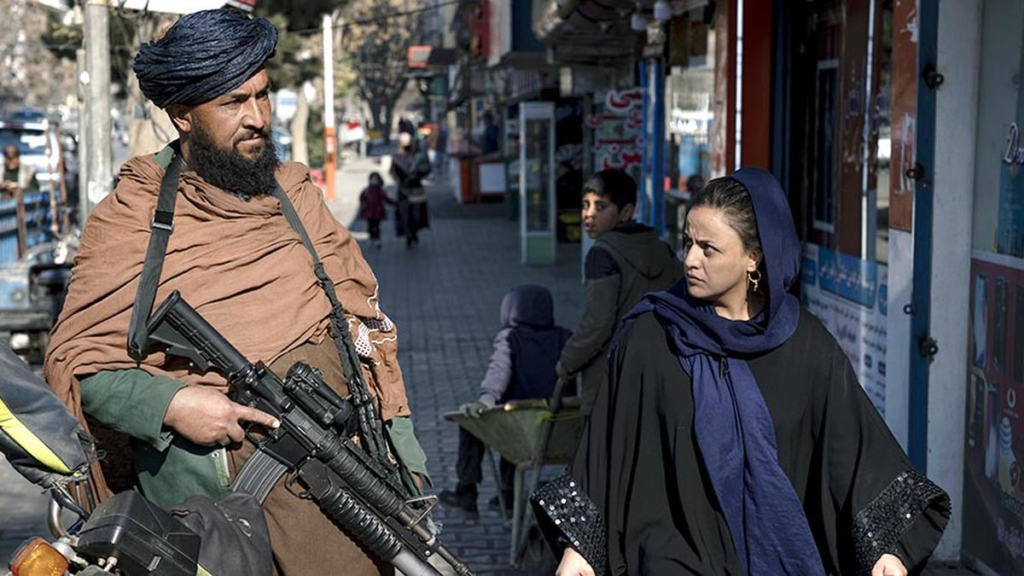The Taliban Ban Medical Education for Women in Afghanistan marks a profound setback for women’s rights and healthcare access. This policy, implemented on December 2, 2024, continues a troubling trend of restricting educational opportunities for women since the Taliban’s return to power in 2021.
The ramifications of this decision are far-reaching, affecting not only the women who dream of becoming doctors but also the broader healthcare system in a country already struggling with shortages of medical professionals.
The Impact on Women’s Rights and Education
Education has long been a battleground for women’s rights in Afghanistan. When the Taliban regained control in 2021, they swiftly imposed restrictions on female education, limiting girls’ schooling to the sixth grade and barring women from universities.
The recent ban on medical education is a further blow to these efforts, striking at the heart of women’s aspirations and societal progress.
The Taliban’s justification for such policies often hinges on their interpretation of Islamic principles. However, these interpretations are widely contested both within and outside Afghanistan.
Many Islamic scholars argue that education, including for women, is not only permissible but essential in Islam. Historically, women in Muslim societies have played crucial roles as scholars, doctors, and leaders.
For Afghan women, the ban symbolizes not just the loss of educational opportunities but the erasure of their potential contributions to society.
Read : Taliban Bans Women from Hearing Each Other’s Voice While Praying
Social media has been flooded with videos of young Afghan women expressing their despair and frustration. These voices underscore the deep sense of loss and helplessness that permeates the female population.
Former Afghan President Hamid Karzai has described the ban as profoundly distressing, particularly given the health challenges faced by women and mothers in the country.
He has called on the Taliban to reverse their decision, emphasizing that education is a cornerstone of national development. Without it, Afghanistan risks further economic and social decline.
The Consequences for Healthcare Access
The ban’s impact extends beyond education; it strikes directly at Afghanistan’s fragile healthcare system. The country has long struggled with high maternal and infant mortality rates, largely due to a lack of access to proper medical care.
In Afghan society, cultural norms often prohibit male doctors from treating female patients, making female medical professionals essential for women’s healthcare.

By banning women from pursuing medical education, the Taliban are effectively cutting off future generations of female doctors, nurses, and midwives. This will exacerbate the existing shortage of female healthcare providers and place additional strain on an already overburdened system.
The European Union and international organizations like the United Nations and Human Rights Watch have condemned the ban, warning of its devastating consequences.
British diplomat Robert Dickson and EU envoy Tomas Niklasson have both emphasized the practical implications of this policy. Without female doctors, many women will be unable to seek medical treatment, leading to preventable deaths and suffering. The ban, therefore, is not just a human rights issue but a public health crisis in the making.
Moreover, the policy undermines efforts to improve healthcare infrastructure in Afghanistan. International aid and development programs often focus on training female healthcare workers, recognizing their critical role in delivering services. The Taliban’s decision will likely discourage foreign investment and cooperation, further isolating the country.
International and Domestic Reactions
The global response to the Taliban’s ban has been swift and unequivocal. Human rights organizations, foreign governments, and international bodies have condemned the move as discriminatory and harmful. The United Nations has called it unprecedented, warning that it will deepen the humanitarian crisis in Afghanistan.
Domestically, the response has been mixed. While many Afghans, especially women, have voiced their outrage, others fear speaking out under the Taliban’s repressive regime.
However, the ban has sparked renewed calls for resistance and advocacy. Some Afghan women have taken to social media to share their stories and raise awareness, hoping to galvanize international support.
The ban also poses a challenge for neighboring countries and international allies. Countries like Pakistan and Iran, which host large numbers of Afghan refugees, may see an influx of women seeking educational opportunities abroad. This could strain resources and complicate diplomatic relations.

Former Afghan officials, including Hamid Karzai, have urged the Taliban to reconsider their stance. Karzai’s appeal highlights a broader concern: that Afghanistan cannot progress without the full participation of its female population. Education is not just a right but a necessity for national development and stability.
The Taliban’s ban on medical education for women is a devastating blow to Afghanistan’s future. It deprives women of their right to education and jeopardizes the country’s healthcare system. The decision reflects a broader pattern of gender-based discrimination that has characterized the Taliban’s rule since 2021.
International condemnation is crucial, but it must be accompanied by concrete actions to support Afghan women. This includes providing educational opportunities abroad, supporting local advocacy efforts, and holding the Taliban accountable for human rights violations.
Ultimately, the future of Afghanistan depends on its ability to harness the talents and contributions of all its citizens. Excluding women from education and healthcare is not just morally wrong; it is a recipe for national decline. The world must stand in solidarity with Afghan women, ensuring that their voices are heard and their rights are protected.

